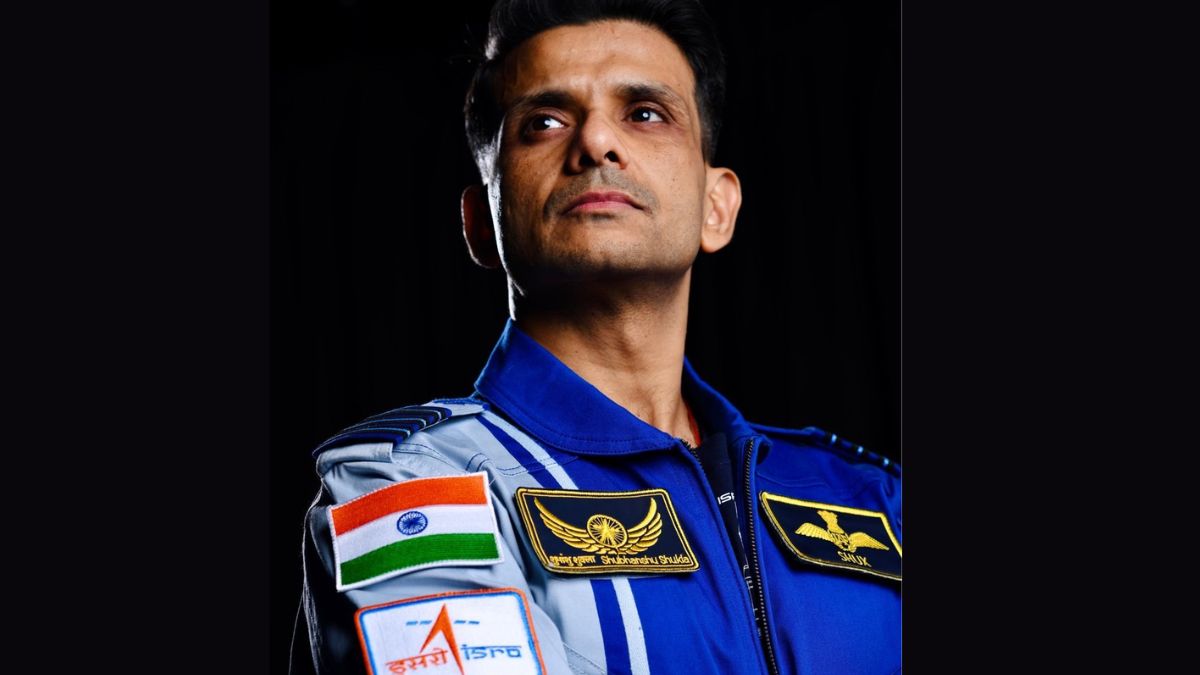In a significant leap for India’s space exploration ambitions, the Indian Space Research Organisation (ISRO) has selected Group Captain Shubhanshu Shukla as the ‘prime astronaut’ for its first collaborative mission with NASA to the International Space Station (ISS) later this year.
The high-stakes mission will also include Group Captain Prashanth Balakrishnan Nair, who has been designated as Shukla’s backup.
Both ‘gaganyatris’ are members of the Indian Air Force, and are poised to represent India on the space mission scheduled for any time after October this year, marking a historic moment nearly 40 years after Wing Commander Rakesh Sharma’s iconic space journey on a Soviet spacecraft in 1984.
This development came following ISRO’s Human Space Flight Centre (HSFC) closing a Space Flight Agreement with US-based space infrastructure developer Axiom Space Inc for the much-awaited Axiom-4 mission.
Who is Shubhanshu Shukla?
Group Captain Shubhanshu Shukla, recently promoted from Wing Commander, hails from Lucknow, Uttar Pradesh, where he was born on October 10, 1985.
According to Indian Express, his journey to becoming an astronaut is deeply influenced by the tales of bravery from the Kargil War in 1999, which happened when he was just 14. These stories of heroism inspired him to join the armed forces, shaping his future ambitions.
Shukla graduated from the National Defence Academy and was commissioned into the Indian Air Force’s fighter stream on June 17, 2006, becoming the first in his family to join the armed forces. Reflecting on his career, Shukla describes it as a “rollercoaster ride", reports News18.
Impact Shorts
More ShortsHe has undergone a Fighter Combat Leader course from the prestigious Tactics and Combat Development Establishment (TACDE) school and has over the years, distinguished himself as a Fighter Combat leader and as a test pilot.
He has amassed around 2,000 hours of flying experience on various fighter aircraft, including the Su-30MKI, MIG-21, MIG-29, Jaguar, Domnier, BAe Hawk, and An-32.
Notably, Shukla is also one of the four IAF officers selected for India’s first manned space mission, Gaganyaan, which is tentatively scheduled for next year.
Fondly nicknamed Gunjan by his family, Shukla is the youngest of three siblings and the father of a four-year-old son. His family views his selection as a momentous occasion, according to a News18 report. At 39, Shukla is the youngest astronaut-designate chosen for the ISS mission.
What is the Axiom-4 mission all about?
Axiom-4 is the fourth mission by private space company Axiom Space in collaboration with NASA that is slated to take off for the ISS sometime in October this year.
India’s involvement in the mission stems from Prime Minister Narendra Modi’s visit to the US last year when he unveiled a collaboration between both countries to send an Indian astronaut to the ISS in 2024.
Following the announcement, The Astronaut Selection Board of India had then selected four astronauts from the group of test pilots from the Indian Air Force (IAF) – Group Captain Prashanth Balakrishnan, Group Captain Ajith Krishnan, Group Captain Angad Pratap, Wing Commander Shubhanshu Shukla.
The 14-day mission will be launched on SpaceX Crew Dragon spacecraft and will lift off from the Kennedy Space Center in Florida on a Falcon 9 rocket. Alongside Shukla, the crew will include astronauts from Poland, Hungary, and the United States.
“During the mission, the gaganyatris will conduct selected scientific research and technology demonstration experiments on board the ISS, as well as participate in space outreach activities. The experiences gained during this mission will be beneficial for the Indian Human Space Programme and it will also strengthen human space flight cooperation between ISRO and NASA,” the Indian space agency said.
Meanwhile, Group Captain Prashanth Balakrishnan, selected as Shukla’s backup, was born in Thiruvazhiyad, Kerala, on August 26, 1976. An alumnus of the National Defence Academy and a recipient of the Sword of Honour at the Air Force Academy, Balakrishnan was commissioned into the IAF in 1998. With over 3,000 hours of flying experience, he is a category A flying instructor and a test pilot who has also commanded a Sukhoi-30 squadron. He is an alumnus of the United States Staff College.
The final approval for their flight to the ISS will be given by the Multilateral Crew Operations Panel (MCOP).
O July 27, Union Minister Jitendra informed the Parliament that astronauts have already completed basic spaceflight training in Russia and are currently undergoing advanced training at ISRO’s Astronaut Training Facility (ATF) in Bengaluru.
As the mission progresses, it is expected to draw significant interest both nationally and internationally, potentially paving the way for future collaborative ventures in space exploration.
With input from agencies
)